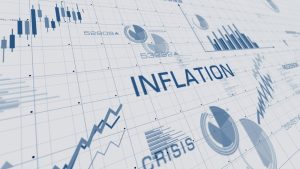
The U.S. retail industry is set to face another blow with a predicted drop in Halloween spending, adding to the woes of debt-laden retailers grappling with increased overheads and a consumer shift towards cheaper products.
What Happened: As per a recent report by Bloomberg, the National Retail Federation anticipates a 5% decrease in US Halloween expenditure, amounting to $11.6 billion this year.
The most significant decline is expected in the sales of greeting cards and costumes, which could hit merchants relying on seasonal spending in an already tough year for the retail sector.
Higher unemployment rates and persistent inflation have particularly impacted lower-income households. During a recent earnings call, Michaels Cos. MIK pointed out that households with earnings below $100,000 are tightening their belts, resulting in smaller shopping baskets.
Also Read: Impending Recession? US Consumer Spending Shows Worrying Signs
Several struggling companies, including Michaels and At Home Group Inc. HOME, are under the ownership of private equity managers. These firms are facing difficulties due to poorly timed buyouts during the pandemic, which coincided with surging interest rates and inflation that strained household budgets.
Despite the hurdles, both Michaels and At Home remain hopeful about securing a larger portion of holiday spending. However, the overall spending cutback is posing challenges for the wider industry, leading to a series of high-profile bankruptcies this year.
Why It Matters: The predicted decrease in Halloween spending is a reflection of the ongoing economic challenges faced by US households.
The retail sector, already hit hard by the pandemic, is now grappling with reduced consumer spending due to inflation and high unemployment rates. This scenario is particularly concerning for firms owned by private equity managers, who are already struggling with the repercussions of ill-timed buyouts during the pandemic.
The situation underscores the need for strategic planning and innovative solutions to navigate the current economic landscape.
Read Next
Brighter Outlook: Goldman Sachs Optimistic On U.S. Economy, Cuts Recession Risk Down To 20%
This content was partially produced with the help of Benzinga Neuro and was reviewed and published by Benzinga editors.
Market News and Data brought to you by Benzinga APIs
© 2024 Benzinga.com. Benzinga does not provide investment advice. All rights reserved.
